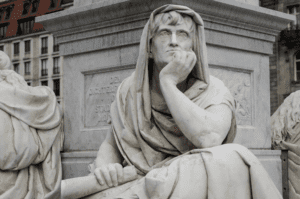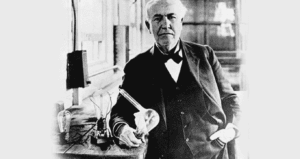Philosophy. For many, the word conjures images of dusty books, abstract theories, and long-bearded scholars debating the meaning of life. But what if I told you that philosophy is far more than an intellectual exercise? What if it holds the key to navigating the complexities of modern life, improving your relationships, finding meaning in the mundane, and unlocking your full potential?
Intrigued? Let’s dive into the surprising and often overlooked power of philosophy in everyday life.
What is Philosophy, Anyway?
Before we embark on this journey, let’s clarify what we mean by “philosophy.” At its core, philosophy is the love of wisdom. It’s a discipline that encourages us to question our assumptions, examine our beliefs, and seek a deeper understanding of ourselves and the world around us.
But philosophy isn’t confined to ivory towers and academic discussions. It’s a practical toolkit that can be applied to every aspect of our lives. It’s about asking questions, challenging the status quo, and seeking truth – not just for the sake of knowledge, but for the sake of living a more meaningful and fulfilling life.
Sharpen Your Thinking: The Critical Thinking Catalyst

In today’s world of information overload, fake news, and endless opinions, critical thinking is more crucial than ever. Philosophy teaches us to dissect arguments, identify biases, and evaluate evidence. It’s like a mental workout that strengthens your ability to think for yourself and arrive at well-reasoned conclusions.
Think about it: how often do you accept information at face value without questioning its validity? Philosophy gives you the tools to challenge the status quo, ask probing questions, and develop your own informed opinions. This is invaluable not only in academic settings but also in your professional life, personal relationships, and decision-making processes.
Boost Your Relationships: The Art of Effective Communication

Have you ever had a misunderstanding with a friend or family member that escalated into a full-blown conflict? Or struggled to express your thoughts and feelings clearly? Philosophy can help.
By studying the works of great thinkers like Socrates, Plato, and Aristotle, we learn the art of dialogue – the ability to engage in thoughtful and respectful conversations. We learn to listen actively, ask insightful questions, and challenge our own assumptions.
This leads to deeper connections, more meaningful conversations, and a greater understanding of ourselves and others. It can transform your relationships from superficial interactions to profound connections that enrich your life.
Find Your Purpose: The Meaning-Making Machine

In a world that often feels chaotic and meaningless, philosophy can be a guiding light. It invites us to ponder the big questions: What is the purpose of life? What is the nature of reality? What is good, and what is evil?
While these questions may not have easy answers, the process of exploring them can be incredibly rewarding. It can help you uncover your values, define your goals, and create a life that feels meaningful and fulfilling.
Philosophy isn’t about finding a single “right” answer. It’s about the journey of self-discovery and the ongoing pursuit of wisdom. By engaging with different philosophical perspectives, you can broaden your horizons, challenge your beliefs, and find your own unique path to a more purposeful life.
Embrace the Unknown: The Uncertainty Antidote
Life is full of uncertainties. We can’t predict the future, control everything that happens to us, or always have all the answers. But instead of letting uncertainty paralyze us with fear, philosophy teaches us to embrace it.
The ancient Stoics believed that the key to happiness is accepting what we cannot control and focusing on what we can – our thoughts, actions, and attitudes. This doesn’t mean giving up or becoming passive; it means cultivating inner resilience and finding peace in the present moment, even amidst life’s storms.
By practicing Stoic principles, we can learn to let go of anxieties about the future, focus on the present, and find joy in the simple things. It’s a powerful antidote to the uncertainties and challenges of modern life.
Live a More Ethical Life: The Moral Compass
Ethics is a branch of philosophy that explores questions of right and wrong, good and bad. It’s like a moral compass that can guide us in making decisions that align with our values and principles.
By studying ethical theories and perspectives, we can gain a deeper understanding of what it means to live a good life. This knowledge can help us navigate complex ethical dilemmas, both in our personal lives and in society as a whole.
Think about the ethical challenges we face in today’s world, from climate change to social justice issues. Philosophy provides a framework for thinking critically about these issues and finding solutions that are both just and sustainable.
Cultivate Self-Awareness: The Inner Journey
Philosophy isn’t just about understanding the world around us; it’s also about understanding ourselves. By examining our thoughts, emotions, and motivations, we can gain valuable insights into who we are and what we truly want out of life.
This self-awareness is essential for personal growth and development. It allows us to identify our strengths and weaknesses, set meaningful goals, and make choices that align with our values and aspirations.
Imagine taking a magnifying glass to your own mind. Philosophy offers tools and frameworks for introspection, helping you understand your beliefs, values, and motivations. This self-knowledge can empower you to make better decisions, build healthier relationships, and live a more authentic and fulfilling life.
Expand Your Mind: The Intellectual Adventure
Philosophy is a journey of lifelong learning and discovery. It’s a vast and diverse field with a rich history of thought and inquiry. By engaging with different philosophical traditions and perspectives, you can expand your horizons, challenge your assumptions, and discover new ways of thinking about the world.
Imagine yourself as an explorer, venturing into uncharted territories of knowledge and understanding. Philosophy can be your map, guiding you through complex ideas, thought experiments, and challenging questions. This intellectual adventure can lead to personal growth, greater understanding of the human condition, and a deeper appreciation for the complexities of life.
Conclusion
The Timeless Relevance of Philosophy
As we’ve explored, the benefits of philosophy in everyday life are vast and far-reaching. It’s not just an academic pursuit; it’s a practical toolkit for navigating the challenges and opportunities of the modern world.
Philosophy empowers us to think critically, communicate effectively, find meaning and purpose, embrace uncertainty, live ethically, cultivate self-awareness, and expand our minds. It’s a lifelong journey of learning and discovery that can enrich our lives in countless ways.
So, the next time you hear the word “philosophy,” don’t dismiss it as irrelevant or impractical. Instead, embrace the wisdom of the ages and discover how it can transform your modern world.
Whether you’re a seasoned philosopher or a curious newcomer, there’s always something new to learn and explore. The world of philosophy is vast and diverse, offering a wealth of knowledge and insights that can help you live a more thoughtful, purposeful, and fulfilling life.
So, what are you waiting for? Start your philosophical journey today and discover the unexpected power of philosophy in everyday life!




